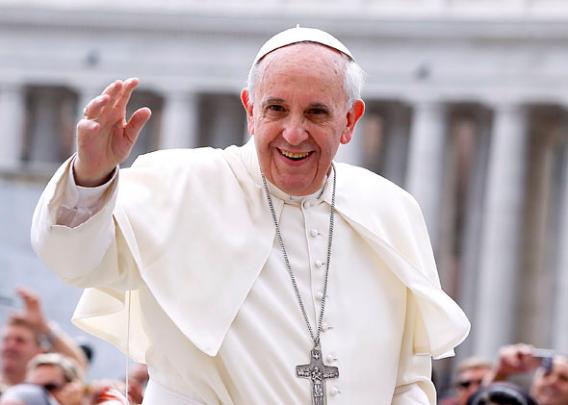Sunday, September 22, 2013
autumnal equinox 4:44pm est...,
By
CNu
at
September 22, 2013
0
comments
![]()
Labels: weather report
did gold come from outer space?
They were sadly deceived.
Gold, an unusually soft metal, wasn't any match for the steel of the Spanish. But the Native Americans may well have been right in believing the element was otherworldly.
"Why do you find nuggets of gold on the surface of the Earth?" asks science writer John Emsley. "The answer to that, is that they've arrived here from space in the form of meteorites."
This theory has come in the last few decades to be held by the majority of scientists as a way of explaining gold's abundance. There may only be 1.3 grams of gold per 1,000 tonnes of other material in the Earth's crust (the rocky shell of the planet that is around 25 miles thick) but that's still too much to fit with the standard models of our planet's formation.
After its birth four-and-a-half billion years ago, the surface of the Earth heaved with volcanoes and molten rock. Then, over tens of millions of years, most of the iron sank down through the outer layer, known as the mantle, to the Earth's core. Gold would have mixed with the iron and sunk with it. Matthias Willbold, a geologist at Imperial College London, likens the process to droplets of vinegar collecting at the bottom of a dish of olive oil.
"All the gold should be gone," he says.
It isn't though. So science has had to come up with an explanation, and the answer currently favoured is - a meteoric shower.
"The theory is that after the core formed there was a meteoric shower that struck the Earth," says Willbold. "These meteorites contained a certain amount of gold and that replenished the Earth's mantle and the continental crust with gold."
Willbold says the theory fits with the pattern of meteorite activity as scientists understand it, climaxing with a huge storm that took place more than 3.8 billion years ago, referred to as the "terminal bombardment". The meteorites punched out the craters we see on the moon and came from an asteroid belt that still exists between Earth and Mars.
This idea of the gold-laden-meteorite "veneer" was first proposed following the Apollo moon landings of the 1970s. Scientists examining rock samples from the moon's mantle found much less iridium and gold than they did in samples from the surface of the moon or from the earth's crust and mantle. It was proposed that the moon and Earth had been battered by iridium-rich meteorites, known as chondrites, from outer space. While the precious fallout from this meteoric shower lay scattered on the surface of the moon, on Earth the planet's internal activity had churned it into the mantle too.
The idea, called the "late veneer hypothesis", has become a fundamental theory in planetary science.
It also helps to explain many other anomalies in the Earth's composition - it is thought that the same meteorites delivered the carbon, nitrogen, water and the amino acids that are vital to all life on the planet.
By
CNu
at
September 22, 2013
0
comments
![]()
Labels: History's Mysteries , Possibilities
Saturday, September 21, 2013
stephen colbert is now america's catholic!
By
CNu
at
September 21, 2013
0
comments
![]()
Labels: common sense , hope , truth
is the pope anti-conservative?
By
CNu
at
September 21, 2013
16
comments
![]()
Labels: The Straight and Narrow
a big heart open to god
By
CNu
at
September 21, 2013
0
comments
![]()
Labels: as above-so below
Friday, September 20, 2013
far more impressed with this old soldier of jesus than I am with myself...,
By
CNu
at
September 20, 2013
12
comments
![]()
Labels: common sense , People Centric Leadership , truth , What IT DO Shawty...
the real agenda is regulating dysgenic breeders...,
“One of the paramount purposes of marriage in Michigan — and at least 37 other states that define marriage as a union between a man and a woman — is, and has always been, to regulate sexual relationships between men and women so that the unique procreative capacity of such relationships benefits rather than harms society.”
By
CNu
at
September 20, 2013
4
comments
![]()
Labels: cultural darwinism , the wattles , theoconservatism , What IT DO Shawty...
Thursday, September 19, 2013
BRICS Cable
Not many understand that, while the immediate trigger for the decision (coupled with the cancellation of a summit with the US president) was the revelations on NSA spying, the reason why Rousseff can take such a historic step is that the alternative infrastructure: The BRICS cable from Vladivostock, Russia to Shantou, China to Chennai, India to Cape Town, South Africa to Fortaleza, Brazil, is being built and it’s, actually, in its final phase of implementation.
No amount of provocation and attempted “Springs” destabilizations and Color Revolution in the Middle East, Russia or Brazil can stop this process. The huge submerged part of the BRICS plan is not yet known by the broader public.
Nonetheless it is very real and extremely effective. So real that international investors are now jumping with both feet on this unprecedented real economy opportunity. The change… has already happened.
Brazil plans to divorce itself from the U.S.-centric Internet over Washington’s widespread online spying, a move that many experts fear will be a potentially dangerous first step toward politically fracturing a global network built with minimal interference by governments.
President Dilma Rousseff has ordered a series of measures aimed at greater Brazilian online independence and security following revelations that the U.S. National Security Agency intercepted her communications, hacked into the state-owned Petrobras oil company’s network and spied on Brazilians who entrusted their personal data to U.S. tech companies such as Facebook and Google.
BRICS Cable… a 34 000 km, 2 fibre pair, 12.8 Tbit/s capacity, fibre optic cable system
- For any global investor, there is no crisis – there is plenty of growth. It’s just not in the old world
- BRICS is ~45% of the world’s population and ~25% of the world’s GDP
- BRICS together create an economy the size of Italy every year… that’s the 8th largest economy in the world
- The BRICS presents profound opportunities in global geopolitics and commerce
Interconnect with regional and other continental cable systems in Asia, Africa and South America for improved global coverage
Immediate access to 21 African countries and give those African countries access to the BRICS economies.
Projected ready for service date is mid to second half of 2015.
By
CNu
at
September 19, 2013
0
comments
![]()
Labels: The Great Game , What Now?
the original AT&T whistleblower
By
CNu
at
September 19, 2013
0
comments
![]()
Labels: bushido , People Centric Leadership
Wednesday, September 18, 2013
the silent military coup that took over...,
 |
| Children, many of whose deformities are believed to be the results of the chemical dioxin that the US used in the Vietnam war, play outside a hospital in Ho Chi Minh City. |
By
CNu
at
September 18, 2013
1 comments
![]()
Labels: Obamamandian Imperative , propaganda , unspeakable , What IT DO Shawty...
command and control...,
 |
| The Titan II carried a W-53 thermonuclear warhead, with more than 560 times the explosive yield of the bomb that destroyed Hiroshima. |
By
CNu
at
September 18, 2013
0
comments
![]()
Labels: Living Memory , old-gnurd , Possibilities , unspeakable
the cowboy of the nsa
By
CNu
at
September 18, 2013
0
comments
![]()
Labels: wikileaks wednesday , you used to be the man
information dominance center modelled after the deck of the starship enterprise...,
"When he was running the Army's Intelligence and Security Command, Alexander brought many of his future allies down to Fort Belvoir for a tour of his base of operations, a facility known as the Information Dominance Center. It had been designed by a Hollywood set designer to mimic the bridge of the starship Enterprise from Star Trek, complete with chrome panels, computer stations, a huge TV monitor on the forward wall, and doors that made a 'whoosh' sound when they slid open and closed. Lawmakers and other important officials took turns sitting in a leather 'captain's chair' in the center of the room and watched as Alexander, a lover of science-fiction movies, showed off his data tools on the big screen. 'Everybody wanted to sit in the chair at least once to pretend he was Jean-Luc Picard,' says a retired officer in charge of VIP visits."
By
CNu
at
September 18, 2013
1 comments
![]()
Labels: Ass Clownery , wikileaks wednesday , you used to be the man
Tuesday, September 17, 2013
twelve conscious men working together CAN rule the world...,
It takes strong system-level pressure to shift the overall group norm from one stable state to another. That pressure can be in the form of either effective legislation or a shift embraced by a minimum critical mass of non-conformants and supported by generally available information. Fist tap io9.
By
CNu
at
September 17, 2013
0
comments
![]()
Labels: culture of competence , Livestock Management
parental investment and discipline nogroes - everything else is limp-wristed conversation...,
In an interview with CNN's Don Lemon Saturday, the comedian was asked to reflect on the 50th anniversary of the March on Washington and to comment on the future of black leadership in the United States.
By
CNu
at
September 17, 2013
0
comments
![]()
Labels: A Kneegrow Said It , priceless....
dramatic race films are for losers...,
 |
| Calvin and Muad'Dib |
By
CNu
at
September 17, 2013
1 comments
![]()
Labels: common sense , priceless.... , truth
Monday, September 16, 2013
greenwald better start looking over his shoulder for nazgul from tel aviv...,
By
CNu
at
September 16, 2013
0
comments
![]()
Labels: Deep State , information anarchy , institutional deconstruction
why never no call for israel to disarm?
He added on Thursday that that all countries in the Mideast should be held to international protocol in order to achieve stability in the region.
Syria decided to cede control of its chemical weapons because of a Russian proposal and not the threat of US military intervention, Interfax news agency quoted President Bashar Assad as saying in an interview with Russia's state-run Rossiya-24 channel.
"Syria is placing its chemical weapons under international control because of Russia. The US threats did not influence the decision," he said.
Assad also told Rossiya-24 that Syria would submit documents to the United Nations for an agreement governing the handover of its chemical arsenal.
Russian President Vladimir Putin has said the initiative will not succeed unless Washington abandons plans for potential air strikes on Syria on the pretext of an alleged Aug. 21 poison gas attack which US President Barack Obama blames on Syrian government forces.
Syria has denied any involvement in the attack, but agreed to Moscow's proposal that it give up its chemical weapons stocks.
By
CNu
at
September 16, 2013
0
comments
![]()
Labels: Deep State , governance
one ring to bring them all and in the darkness bind them...,
By
CNu
at
September 16, 2013
0
comments
![]()
Labels: Living Memory , unspeakable
Chipocalypse Now - I Love The Smell Of Deportations In The Morning
sky | Donald Trump has signalled his intention to send troops to Chicago to ramp up the deportation of illegal immigrants - by posting a...

-
theatlantic | The Ku Klux Klan, Ronald Reagan, and, for most of its history, the NRA all worked to control guns. The Founding Fathers...
-
NYTimes | The United States attorney in Manhattan is merging the two units in his office that prosecute terrorism and international narcot...
-
Wired Magazine sez - Biologists on the Verge of Creating New Form of Life ; What most researchers agree on is that the very first functionin...









